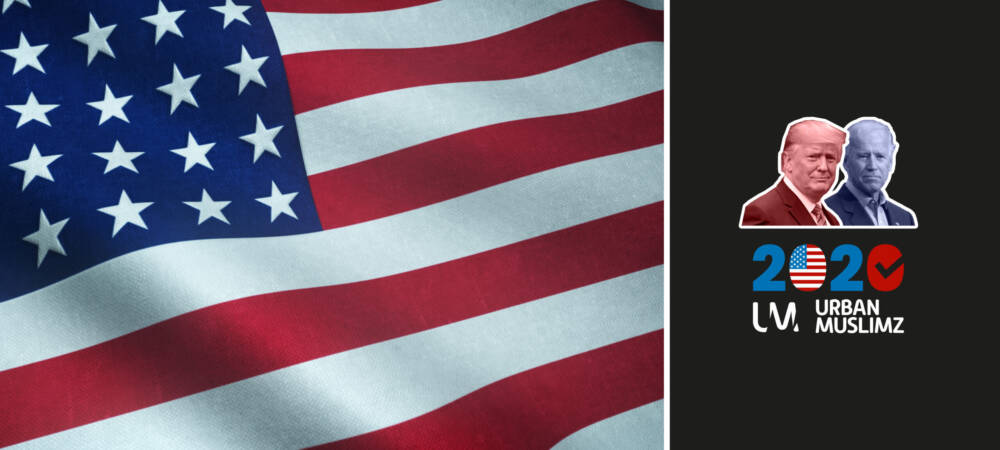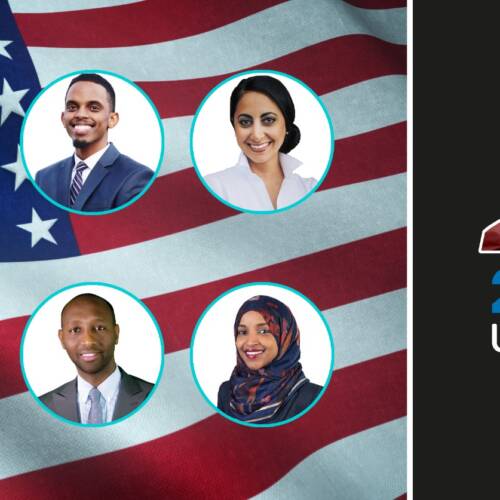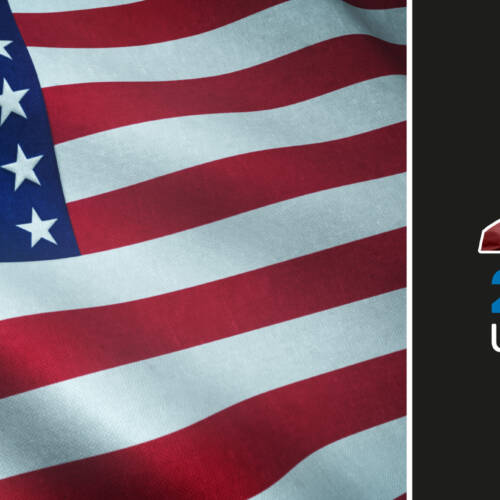
As Trump Pits Communities Against Each Other, Interfaith Is the Answer
02 Nov 2020For those of us living outside the US, the idea of Christians throwing their lot with Donald Trump – or the wider Republican Party – is puzzling at best.
To paraphrase a recent quote; the metamorphosis of Jesus (PBUH) from a servant of the abject poor to a symbol that stands for fierce nationalism, gun rights, neglecting of destitute and glorification of greed, is truly one of the strangest transformations in human history.
Whole books can be – and has been – written about the phenomenon of the US’ evangelical population turning firmly to the Republican Party even as it represents less and less of Jesus’ (PBUH) values.
More puzzling is how evangelical Christians have turned to support Trump, a man whose claims to being a good Christian are as flimsy as his record as a good businessman.
The fact is, Trump – or more accurately, his core supporters, enabled by the wider Republican Party – have successfully agitated the evangelical Christian base for years, accusing opponents with all sorts of increasingly-incredulous offences.
Over the years, these accusations coalesced into a “Christians Under Attack” narrative that Trump has successfully used for his own reasons.
A Toxic Combination of Anxieties
The idea that Christians are becoming an oppressed minority not allowed to practice their religion has been growing among evangelical Christians for years, if not decades.
One just has to look at the yearly occurrences of Christians believing that there is a war declared on Christmas – aimed at removing any traces of Christianity from the holiday – to see the manifestations of such hysteria.
It has been a slow and steady process that slow-boiled the anxieties among evangelical Christians, pitting them against gun-control activists, LGBT+ movement, the anti-fascist movement, the “liberal elite”, Muslims, immigrants, Catholics, Palestinian solidarity movement, Black Lives Matter, social justice activists or whoever was the enemy of the week.
Anything that did not adhere to the values or fit in with the fabric of suburban-rural, ostensibly-Christian, usually white middle class people was an “other” set on destroying what “American values” stood for.
Trump did not start this trend. He merely inherited it. By the time the 2016 election campaign was in progress, such hysteria was heated up over the decades was in full swing, bolstered by unsubstantiated beliefs that President Barack Obama was a secret Muslim bent of Islamising the US.
And then came the conflict following the Arab Spring and the subsequent refugee crisis. The emergence of the not-so-Islamic ‘Daesh’ and the horrific attacks on Middle Eastern Christians that saw them driven from their homes, killed en masse and enslaved sent shockwaves around the world.
The subsequent refugee crisis and Europe’s mishandling – barring some exceptions – of the affairs did not help. The far-right latched on to the idea that the crisis was not a case of people facing horrific dangers to escape war and poverty but a deliberate invasion aimed at changing the demographics of Europe and, eventually, the US, replicating the horrors seen in Iraq and Syria in the West.
The crisis bolstered by wider beliefs that white Americans will become a minority or, at least, not as big a majority, turned the far-right belief of a “Great Replacement” from a fringe theory into a household name.
It is doubtful that Trump had any in-depth knowledge about these ideas. But among his observers were far-right ideologues such as Steve Bannon who were intensely familiar with these ideas. And Trump, for all his failings, has an intensely keen sense of how to make his audience tick.
“He’s following the radical left agenda, take away your guns, destroy your second amendment, no religion, no anything, hurt the Bible, hurt God … He’s against God,” he told his audience earlier this year, commenting on his opponent, Joe Biden.
For his target audience, bizarrely there is little contradiction between their beliefs and Trump’s actions. Even despicable incidents, such as the gassing of a Black Lives Matter crowd in front of a church to drive them away so that Trump could have a photo-op with a Bible, did not alienate them.
Their belief that Christians are under attack and need someone to carry their torch, even a figure as odious as Trump, is too strong for them to flag in their support.
As experts have pointed out, his supporters don’t see a trade-off between their Christian values and a man like Trump.
The Answer Lies in Interfaith
The last four years have shown that Trump will be swayed neither by impassioned arguments from opponents – be they gun control activists, the LGBT+ movement, the anti-fascist movement, the “liberal elite”, Muslims, immigrants, Catholics, Palestinian solidarity movements, Black Lives Matter, social justice activists – nor by the horrific images of children separated from their parents kept in cages or the mounting coronavirus death toll.
Such is not the case with his supporters. Many, especially younger evangelicals, are increasingly seeing Trump’s excesses incompatible with the values Jesus (PBUH) stood for.
This is an opportunity for Muslims to reach to such disaffected Christians – as well as all others who have been caught in Trump’s crossfires at one point or another – and to build bridges, showing that they have nothing to fear from us, that we are not the boogeymen they fear we are.
Interfaith has gained something of a bad rep in recent years, being viewed as an ineffectual PR exercise that does little to deepen relations, building only the most superficial bridges. There are valid criticisms to how interfaith is practiced today and how effective it is. But the core concept of interfaith remains a valid idea.
As we get closer, we will be able to dispel myths we have about each other, keeping extremists from exploiting our faiths against each other and can even see evangelical Christians standing up for Muslims in the face of their compatriots, hopefully triggering long-lasting changes.
Interfaith work today remains essential towards dispelling the narrative pushed by Trump and ensuring that the rifts he exploited can be finally healed.







